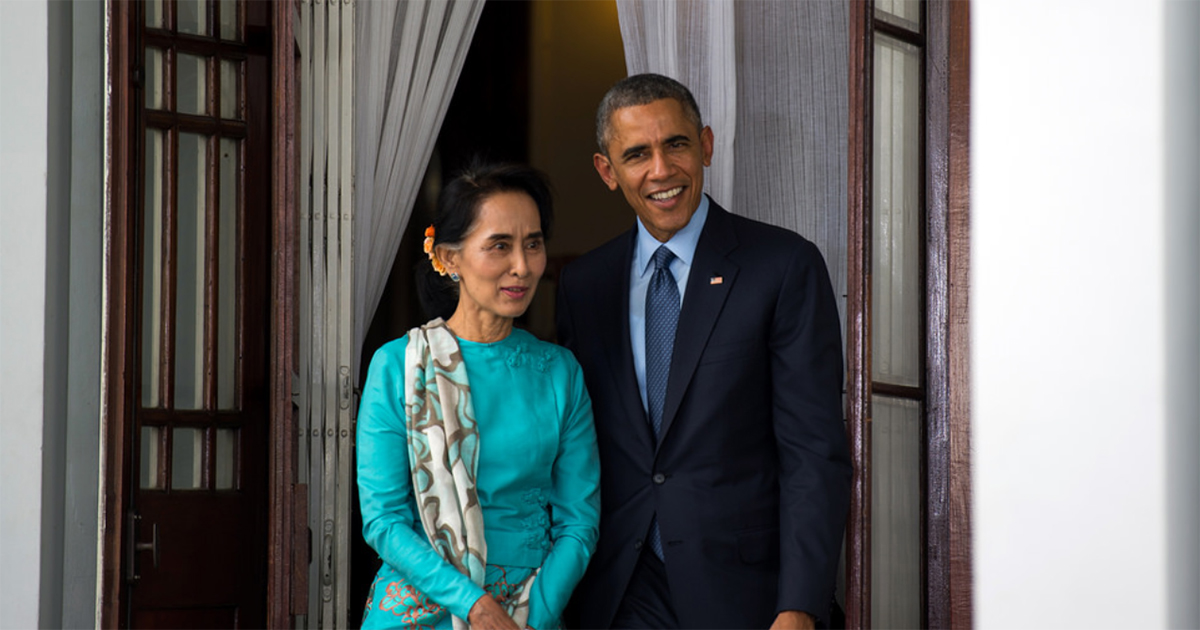Aung San Suu Kyi has been stripped of Amnesty International's highest honor.
The UK-based rights group announced the revocation on Tuesday, Nov. 13, in light of her "shameful betrayal of the values she once stood for", the group said.
Amnesty's secretary general, Kumi Naidoo, wrote to the civilian leader of Myanmar on Sunday to inform her of the decision.
This news comes as Suu Kyi is in Singapore for the regional Asean Summit held during the second week of November 2018.
2009 award
Suu Kyi received The Amnesty International Ambassador of Conscience Award in 2009, in recognition of her peaceful and nonviolent struggle for democracy and human rights.
She was serving time under house arrest then.
No longer symbol of hope
Naidoo wrote:
"Today, we are profoundly dismayed that you no longer represent a symbol of hope, courage, and the undying defense of human rights. Amnesty International cannot justify your continued status as a recipient of the Ambassador of Conscience award and so with great sadness we are hereby withdrawing it from you."
He also wrote that Suu Kyi has "chosen to overlook and excuse the brutal oppression and crimes against humanity committed by the military" and that her administration "actively shielded the military from international scrutiny and accountability."
Awards revoked
Suu Kyi has had a string of awards and accolades revoked amid the Rohingya crisis.
In March, the US Holocaust Memorial Museum announced it was rescinding the prestigious Elie Wiesel Award granted to Suu Kyi in 2012.
In November 2017, Suu Kyi was stripped of the Freedom of the City of Oxford award, which honored her in 1997 for "her opposition to oppression and military rule in Burma".
Her portrait in Oxford University's St. Hugh's College, where she studied at as an undergraduate, has since been removed.
In September 2018, Canada's House of Commons voted unanimously to revoke her honorary citizenship.
In what is becoming an increasing prescient insight that has aged well, the first prime minister of Singapore Lee Kuan Yew told Reuters in June 1996:
"I have visited (Burma) and I know that there is only one instrument of government, and that is the army... If I were Aung San Suu Kyi, I think I'd rather be behind a fence and be a symbol than after two or three years, be found impotent."
This led to angry demonstrations outside several Singaporean embassies in the region then. Some protesters even burned effigies of Lee.
Criticism
Amnesty criticised the Nobel laureate for her "apparent indifference" to military atrocities in ethnic areas and "increasing intolerance of freedom of expression", as well as failing to use her "political and moral authority" to safeguard human rights in the country.
Suu Kyi has been stripped of a number of awards amid allegations of genocide of the country's minority Rohingya Muslim population.
In response, Suu Kyi said in September that, with hindsight, her government could have better handled the situation in Rakhine state.
Myanmar's civilian government shares power with the military, which retains control of a quarter of the seats in parliament.
Suu Kyi's official position is State Counselor, an office she took up in 2015.
The Myanmar military has been accused of ethnic cleansing using systemic rape, murder and arson that drove more than 700,000 Rohingya to flee to Bangladesh, where they end up in the world's largest refugee camp.
Suu Kyi's administration has repeatedly denied the allegations of abuse and genocide, citing military response to attacks from Rohingya militants as justification.
Top photo via US Department of State
If you like what you read, follow us on Facebook, Instagram, Twitter and Telegram to get the latest updates.
